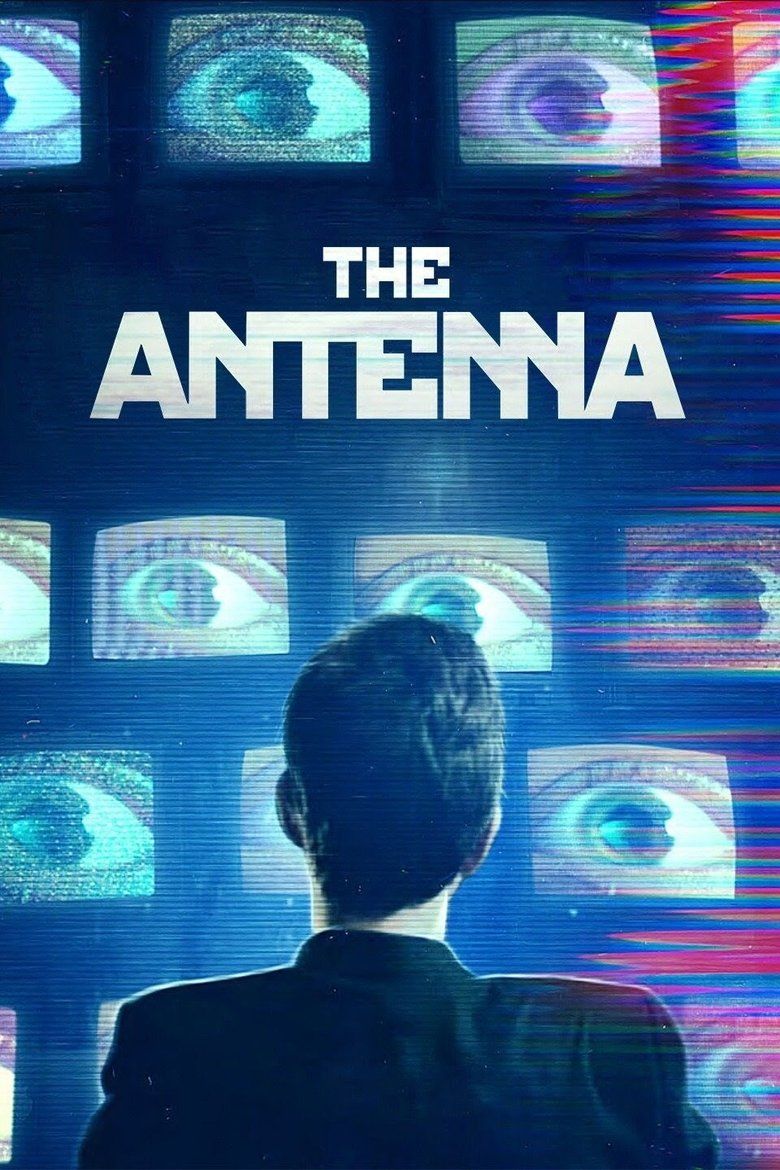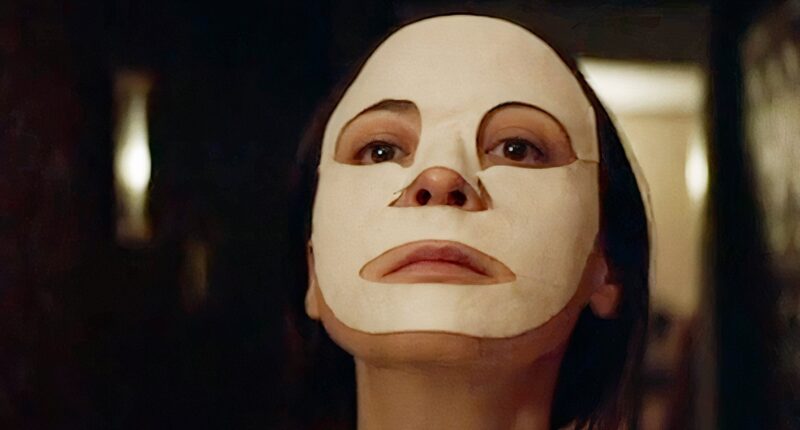Dystopian horror movies don’t come out very often, especially ones where the anti-utopia actually takes place in an alternate version of the past instead of the future. This is just one of the elements that make The Antenna, the 2019 feature debut of Turkish director Orçun Behram, so intriguing and effective. The film didn’t receive a lot of attention at the time of its release, despite its premiere at the Toronto Film Festival, where it was unfortunately not featured in the Midnight Madness section and simply got lost in the extensive program. Several years later, both the film’s style and its major themes seem more relevant than ever.
The thing that makes this particular subgenre complicated in the first place is that the villain in most dystopian stories is the system itself, which raises the dilemma of the best way to adapt this idea to horror. In his impressive debut, Behram manages to do both, combining social and political allegories with suspense and body horror. With some creatively nightmarish visuals, multiple references to the works of David Cronenberg and David Lynch, especially the former’s Videodrome, and an interesting, poignant message to transmit, The Antenna is one of those hidden gems that deserves more attention.
‘The Antenna’ Turns Propaganda Into a Horror Movie Villain
The action of The Antenna takes place in an unnamed country under totalitarian rule. The year is also not disclosed, but it looks like a grim, slightly alternate version of the recent past: there are no cell phones or the internet, so television is the primary source of information and entertainment. New and advanced communication technology that’s supposed to broadcast the state propagandist channel is being installed in a shabby-looking high-rise building somewhere on the depressive outskirts of a town. The building’s superintendent, Mehmet (Ihsan Önal), oversees the installation with a growing sense of unease, especially when the antenna claims its first victim by making the maintenance person working on it fall to his death. One by one, the building’s residents feel the aftereffects too.

Related
The 23 Most Underrated International Horror Movies, Ranked
Don’t miss out on these great international horror movies when looking for your next scare.
One woman gets addicted to a questionable skincare routine with dire consequences. A family’s patriarch, who wishes to marry off his young daughter, Yasemin (Gül Arici), to a sleazy bureaucrat, gets even more dominant and aggressive towards the women in his family, until his behavior turns murderous. And a young child watches helplessly while the building, or maybe the whole world around him, is falling apart. At the same time, his parents are too busy with their TV-watching ritual, since it’s the only escape available from the everyday problems of the ruthless reality. To double down on the central metaphor of propaganda being toxic and serving as the main villain here, the authors give it a physical representation; a nasty black goo that spreads throughout the house and invades bodies and minds alike, thus creating opportunities for the film’s most tense and chilling moments, and setting up its major theme at the same time.
‘The Antenna’ Is a Stunning Dystopian Nightmare, but Its Real Strength Is Its Main Villain
The idea of a confined space representing society in general isn’t new in the dystopian genre, of course. But while such movies as Ben Wheatley‘s High-Rise and another film from the 2019 TIFF program, Galder Gaztelu-Urrutia‘s The Platform, use the geometry of their respective locations to tear apart the existing class system and social inequality, The Antenna isn’t interested in dissecting the hierarchies that are clear from the beginning in its totalitarian world. The reality in Behram’s feature is bleak even before the black goo starts inflicting its gruesome wrath. The film is colored in hushed, murky tones, scored with Can Demirci’s wound-up soundtrack exuding nervous energy, with lots of wide shots that make humans look small and inherently alone. Even before the blood starts spilling, the authors never forget they’re also making a horror film, coming up with ways to discover the macabre in the mundane things like bathroom leakage.
The film fully descends into nightmarish chaos in its final act, with Lynchian surrealist imagery and Cronenbergian devious technologies ready to thrust their tentacles into humans. It slightly loses the narrative thread at this moment (which was the main reason it was criticized for after the premiere), but not its true intention. Unlike its predecessors, The Antenna is laser-focused on propaganda as one of the most efficient and terrifying weapons in any system’s arsenal, even though the classic dystopian outings of the past, such as 1984, should’ve taught us all by now about the way it works. Behram, who not only directed the film but also wrote the screenplay, performs an interesting trick here by demonstrating that, in reality, propagandist manipulation doesn’t just follow one unified outline, but instead adapts and preys on the vulnerabilities of those susceptible to it.
How it affects the characters is also symbolic. The woman obsessed with looks and the surface of things allows herself to follow someone’s instructions blindly and steps right into danger. The father, who realizes he can’t control his daughter’s mind, resorts to physical violence instead. Several characters turn into faceless, indistinguishable creatures. The allegories Behram utilizes might not be the most subtle, but they are effective in getting the message across, especially combined with all the creative gore that comes with it. However, there is another, and arguably the most impressive, element of The Antenna that really makes it stand out among other dystopian stories. In most of them, the distortion of the truth is usually a tool to keep the remaining status quo standing, something that, at least seemingly, guarantees stability and benevolence to those who don’t rock the boat. The Antenna goes right ahead and shows propaganda as an actual monster who either destroys its victims, regardless of their beliefs or loyalty, or turns them into something monstrous too. This is the main message the film is sending: the toxicity of manipulation and abuse of power is real and scary, even when it doesn’t present itself like a nasty goo.

The Antenna
- Release Date
-
October 16, 2020
- Runtime
-
115 minutes
- Director
-
Orçun Behram
- Writers
-
Orçun Behram









